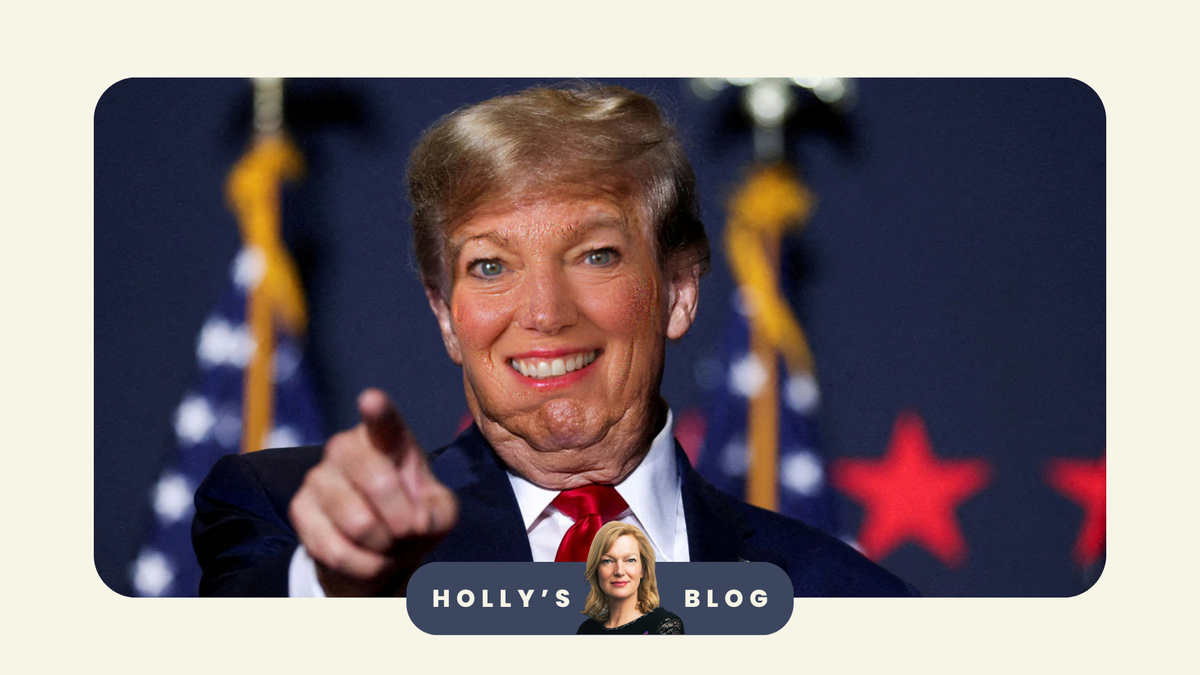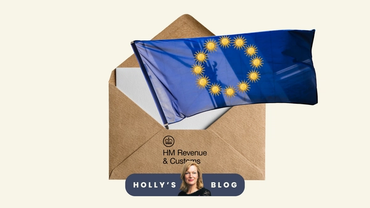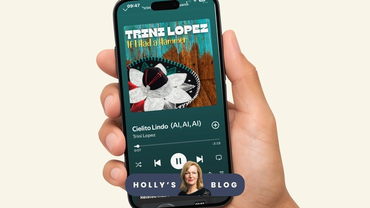Why Mummy has to sometimes use strong language
By Holly Mackay, Founder & CEO
27 June, 2025

Ooh, I’m having a strop this week. Donald Trump is not the only one who’s been effing and jeffing.
I have had one of those weeks when I have been banging my head against a brick wall, trying to persuade a number of financial institutions to make clearer communications, to support comparison of their products, and to give people the headline facts without drowning us in gubbins.
Here’s the backdrop to some of my angst. The regulator is re-thinking how it can empower compliance-heavy and (understandably) legally cautious fund managers to do a better job of communicating with consumers. At the moment, we drown in text-heavy gobbledygook, which has alphabet soup and lists of numbers, and we fail to grasp the basics. Boring Money tests a lot of communications (often thanks to our "Army", or Research Panel), so we know how confusing they are. I always remember one lady trying to make sense of a factsheet saying, “There is so much jargon, it makes me want to cry!” She's not alone.
Most people tell me they want to know a few key things. How much something costs (and is it cheap, in the middle or pricey); how well it has done over the last 5 years; how has it done compared to cash (so you can see the difference between investing and leaving it in a savings account) and what would things look like in a terrible year (in other words, how much could we potentially lose).
One way we measure how hernia-inducing an investment is, is ‘maximum drawdown’. Bear with me – it’s a good concept to get your head around! It basically imagines you stick in £100 in any given time period, and then looks at the very best day, and the very worst day, and the gap in between the two. It’s the difference between the top and the bottom of the rollercoaster and so gives you an idea of what to expect on the ride.
Let’s pick a worst-case scenario. In 2020, as we went into lockdown and the stock market freaked out, the maximum drawdown of the FTSE 100 was 36%. So, had you invested on the day that the market was at its highest, and sold when the market was at its lowest, your £100 would have turned into about £64. In practice the chances of picking these two precise days to buy then sell on are pretty unlikely, but it’s a good way of illustrating what we need to be mentally prepared for, compared to cash.
To put a more balanced view forward, the maximum drawdown of the S&P 500 in 2024 was about 10%. Less spooky. Time will balance out the rough with the smooth and is why we all bang on so much about investing being for the long-term.
Investing can be complicated, but so can dentistry. And we all manage to get the odd filling without knowing the chemical properties of amalgam. This industry needs to stop revelling in complexity and show people the basics. I don’t need to know every single iddy-biddy fee at the outset. I just need to know the headline number. And understand – much like on TripAdvisor – whether it’s a £££££ option or a £ one.
The best way to get an initial view of what an investment fund costs is to look for the ‘OCF’. Ongoing Charges Figure. For a low-cost index tracker, this will be about 0.05% - 0.15% every year. Or 5p-15p for every £100 invested. For a more actively managed fund, where someone cherry picks a shortlist of what they think are winners, the OCF will be nearer 0.75% every year - that’s 75p for every £100 invested.
More experienced investors who pick more complex funds and sectors can also look up transaction charges. These might add another 0.4% - 0.5% in costs every year for a China fund, for example, where trading can be harder, but will typically only add about 0.1 – 0.2% a year for a bog standard UK equity fund.
Although most providers I work with have a genuine desire to be better (and to be fair, future regulatory changes should support them to be clearer), there are still a few who I think enjoy the complexity and indeed hide behind it. The lack of comparability suits them. Our confusion is their power. And that, my friends, is why Mummy has to sometimes use strong language. **$%£%grrrrrr**!!!
A callout to some providers who do well here. AJ Bell, Barclays Smart Investor and Fidelity try really hard to spell out costs in a clear way, using both £s and %s to illustrate. It makes a difference. 👏
Not helped by confusing language, too many people are still ‘muddling along’ with their finances. There are over 12 million Brits in the ‘Advice Gap’. With some cash savings and maybe some investments, but feeling pretty unconfident and wishing someone would just tell them what to do. In the coming days, we're expecting a new set of rules from the regulator, which will pave the way for financial companies to be able to do just this. It’s actually hugely exciting and a real game changer.
More on this next week. Finally, I must apologise for the photo. It’s highly disturbing, but then so was the language at the NATO summit. I can’t quite unhear it and it’s been making me feel just a little bit queasy all week! Have a great weekend and enjoy the sun.
Holly
Post a comment:
This is an open discussion and does not represent the views of Boring Money. We want our communities to be welcoming and helpful. Spam, personal attacks and offensive language will not be tolerated. Posts may be deleted and repeat offenders blocked at our discretion.







Hands down best headline photo ive ever seen on a blog
ilana
15 July 2025